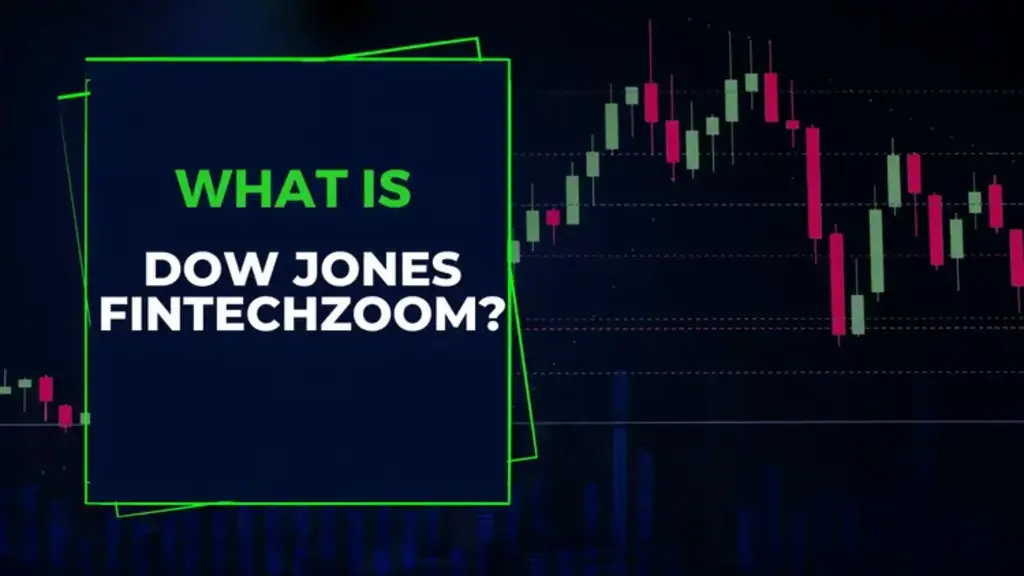The Dow Jones FintechZoom Industrial Average (DJIA) is one of the most widely recognized stock market indices globally, representing the performance of 30 significant publicly-owned companies based in the United States. As the financial world evolves, Fintech (Financial Technology) has become a driving force in shaping market trends, investment strategies, and economic forecasts. This article provides an in-depth look at the intersection of Dow Jones and Fintech, exploring how these two elements interact and influence each other.
Understanding the Dow Jones FintechZoom Industrial Average
The Dow Jones FintechZoom Industrial Average was created by Charles Dow and Edward Jones in 1896. It serves as a barometer of the U.S. stock market and, by extension, the U.S. economy. The DJIA is a price-weighted index, meaning that stocks with higher prices have a more significant impact on the index’s overall performance. This characteristic distinguishes it from other indices like the S&P 500, which is market-cap weighted.
Components of the Dow Jones FintechZoom
The 30 companies included in the DJIA are leaders in their respective industries, ranging from technology and healthcare to finance and consumer goods. These companies are selected based on their reputation, growth potential, and significant contribution to the economy. As of now, notable companies include Apple, Microsoft, Johnson & Johnson, JPMorgan Chase, and The Coca-Cola Company.
The Role of Fintech in Modern Finance
Fintech refers to the integration of technology into offerings by financial services companies to improve their use and delivery to consumers. It encompasses a broad spectrum of applications, from mobile banking and insurance to cryptocurrency and investment apps.
Key Areas of Fintech Impact
- Digital Payments: Fintech has revolutionized how transactions are made, with platforms like PayPal, Square, and Venmo leading the way.
- Blockchain and Cryptocurrencies: Technologies like blockchain are transforming traditional financial systems, providing secure, transparent, and decentralized transaction methods. Bitcoin, Ethereum, and other cryptocurrencies have emerged as significant assets.
- Investment and Wealth Management: Robo-advisors and AI-driven investment platforms are democratizing access to sophisticated investment strategies.
- Lending: Peer-to-peer lending and online lending platforms have disrupted traditional banking, offering more accessible and quicker loans to individuals and businesses.
How Fintech Influences the Dow Jones FintechZoom
The integration of fintech into the financial sector has a direct and profound impact on the Dow Jones FintechZoom Industrial Average. Here’s how:
Technological Innovation and Stock Performance
Companies that are part of the DJIA often adopt fintech innovations to improve efficiency, reduce costs, and enhance customer experiences. For instance, Goldman Sachs‘s investment in digital banking platforms and Visa‘s advancements in payment technology are examples of how fintech can drive a company’s growth, positively influencing its stock performance and, consequently, the DJIA.
Market Sentiment and Investor Behavior
Fintech platforms provide investors with real-time data, advanced analytics, and automated trading options. This accessibility to information and trading tools can lead to more dynamic market movements, affecting the stock prices of companies within the DJIA. The increased participation of retail investors, empowered by fintech, can also lead to higher volatility and trading volumes.
Economic and Regulatory Changes
Fintech developments often lead to new regulations and policies aimed at ensuring financial stability and consumer protection. These regulatory changes can have significant implications for companies in the DJIA. For example, stringent data protection laws can impact how financial firms operate, affecting their profitability and stock performance.
Case Studies: Fintech’s Impact on Specific Dow Jones FintechZoom Components
1. Goldman Sachs (GS)
Goldman Sachs has heavily invested in fintech, particularly through its consumer banking platform Marcus. This move has allowed Goldman Sachs to diversify its revenue streams, reduce dependence on traditional investment banking, and appeal to a broader customer base. The success of Marcus illustrates how fintech can enhance a company’s financial performance and market valuation.
2. Visa (V)
Visa has embraced fintech by developing and acquiring technologies that facilitate secure, fast, and global digital payments. Its investment in blockchain technology and partnerships with fintech startups have positioned Visa as a leader in the digital payments space. This continuous innovation is reflected in Visa’s robust stock performance and its influence on the DJIA.
3. Apple (AAPL)
Apple’s foray into financial services with Apple Pay and the Apple Card demonstrates the tech giant’s commitment to fintech. By integrating financial services into its ecosystem, Apple enhances customer loyalty and creates new revenue streams. This strategy not only strengthens Apple’s market position but also contributes to the overall performance of the DJIA.
Future Prospects: Fintech and the Dow Jones FintechZoom
The future of the Dow Jones Industrial Average will likely be shaped significantly by ongoing advancements in fintech. As technology continues to evolve, we can expect the following trends:
1. Increased Adoption of AI and Machine Learning
AI and machine learning will play a pivotal role in financial services, offering predictive analytics, personalized financial advice, and automated trading. Companies that leverage these technologies will likely see improved efficiency and profitability, positively impacting their stock prices.
2. Expansion of Blockchain Applications
Beyond cryptocurrencies, blockchain technology has the potential to transform various aspects of finance, including supply chain management, cross-border payments, and smart contracts. Companies investing in blockchain innovations will be at the forefront of this transformation, influencing the DJIA’s composition and performance.
3. Greater Focus on Cybersecurity
As fintech adoption grows, so does the need for robust cybersecurity measures. Companies investing in advanced cybersecurity solutions will not only protect their assets and customer data but also enhance their reputation and market value, contributing to the overall stability and growth of the DJIA.
Conclusion
The interplay between the Dow Jones Industrial Average and fintech is a testament to the transformative power of technology in finance. As fintech continues to drive innovation, companies within the DJIA will need to adapt and evolve to maintain their competitive edge. This ongoing evolution will shape the future of the stock market and the broader economy, highlighting the critical role of fintech in modern finance.
Looking ahead, the fusion of fintech with the traditional financial sector presents both challenges and opportunities. Companies that successfully integrate cutting-edge technologies will not only boost their market performance but also contribute to the dynamism of the DJIA. Investors and stakeholders must stay informed and agile to navigate this rapidly changing landscape, ensuring sustained growth and stability in the financial markets.
Read Also: Analyzing Apple Stock FintechZoom – A Deep Dive into FintechZoom’s Insights







